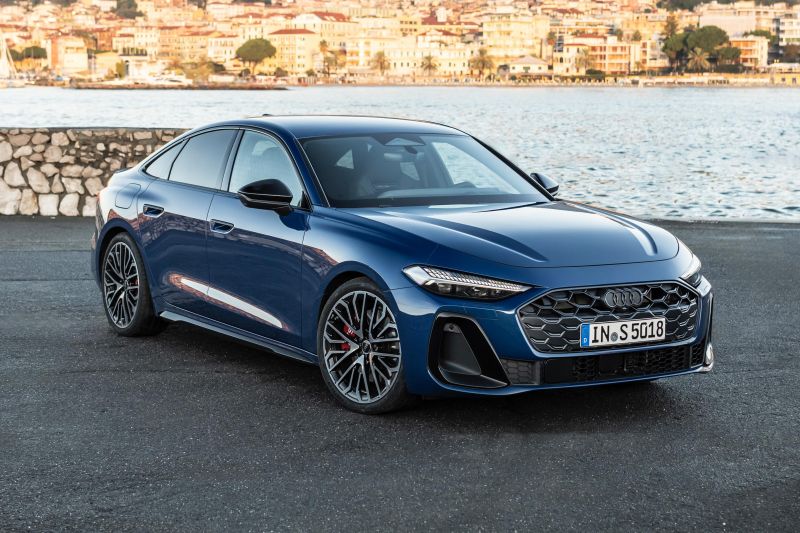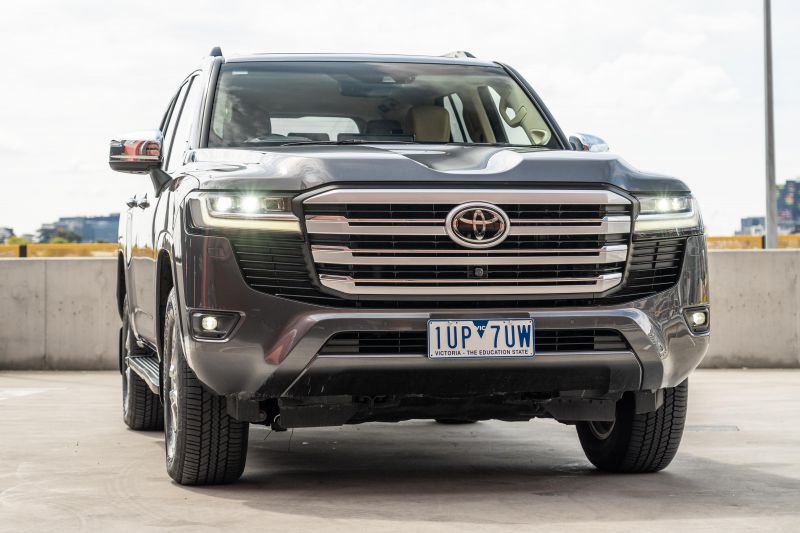Introduced in part to help protect Australian’s car manufacturing industry, the Luxury Car Tax (LCT) has in recent years been derided as outdated and punitive – and now it looks like it could finally be on the chopping block.
The Australian reports word from a source close to Prime Minister Anthony Albanese, whose party retained government at Saturday’s federal election, that the government is planning to dump the controversial tax.
This would satisfy the European Union, which has been pushing for the LCT to be abolished for at least five years.
However, the Albanese government reportedly will only dump the LCT in exchange for better access for Australia’s agricultural exports to the EU.
Hundreds of new car deals are available through CarExpert right now. Get the experts on your side and score a great deal. Browse now.
This had been sticking point when previous Australia-EU negotiations on a free-trade agreement (FTA) collapsed in 2023.
The market has changed since then, with European carmakers significantly impacted by US President Donald Trump’s imposition of tariffs on vehicle imports to the US.
A source told The Australian that Europe is pushing for FTA negotiations to be sped up, and the government is keen to resume talks as soon as possible.
The LCT raises approximately $1.2 billion in annual revenue, and adds 33 per cent to any part of a vehicle’s price above the LCT threshold.
This is currently $91,387 for fuel-efficient (ie: vehicles with fuel consumption of under 7.0L/100km) and electric vehicles (EVs), and $80,567 for all other vehicles.
Thresholds are set annually by the government and are indexed to the Consumer Price Index (CPI).
From July 1, the definition of a fuel-efficient vehicle is changing to one with fuel consumption of under 3.5L/100km following the passing of the Treasury Laws Amendment (Tax Incentives and Integrity) Act 2025.
This change to the tax was implemented to drive uptake of more environmentally friendly models.
Vehicles from Europe are also impacted by a five per cent import tariff, due to the absence of an FTA between Australia and the EU.
But the proposed abolition of the LCT has been met with criticism from at least one of Labor’s opponents, on the basis the government would be removing a tax from more expensive vehicles while also getting ready to impose penalties on brands that sell more popular, higher-emitting vehicles such as utes and SUVs as part of its New Vehicle Efficiency Standard (NVES).
“I think it’s a bit strange for the first act of a government to be giving a massive free kick to people who can afford very expensive European cars,” Nationals Senator Matt Canavan told Sky News.
“Why would we be making very expensive European cars cheaper while we make the average standard vehicles that Australians are struggling to afford more expensive?”
In contrast, the Australian Automotive Dealer Association (AADA), the peak body for car dealers in Australia, has been among the voices domestically calling for the LCT to be scrapped, or at least significantly modified as part of a “wider root and branch review of Australia’s automotive taxation regime”.
Calling it a “relic of an era when Australia manufactured vehicles” in its pre-budget submission this year, the AADA called for its “complete abolition”.
“The LCT was originally introduced as a means of protecting Australia’s local vehicle manufacturing industry. With local manufacturing coming to an end in 2017, it just imposes unnecessary additional taxes on many vehicles, particularly more expensive lower emitting and EVs,” the body said.
The AADA argues it disincentives customers from buying new, safer and more environmentally friendly vehicles, and also penalises buyers – particularly those in regional areas – who require large SUVs and vehicle accessories that are aimed to improve safety.
“If the total abolition of the LCT cannot be achieved in a timely manner,” the AADA argues, “then we propose reforms to the LCT, such as raising the threshold to target truly luxury vehicles and stage a sunset period for LCT, exempt low emission vehicles and exclude accessories from the calculation of whether a vehicle hits the threshold for
paying the LCT.”




